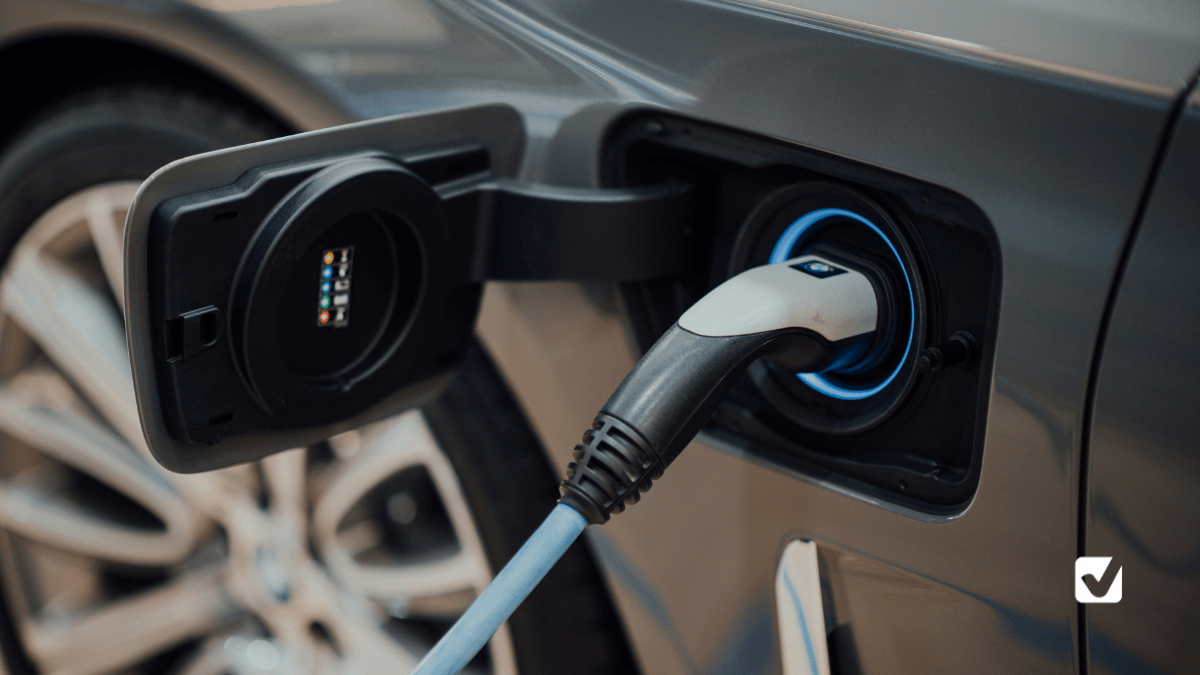Best EV electricity plans in NZ 2025: Charging smarter for electric vehicle owners

With the rapid growth of electric vehicles in New Zealand, selecting the right ev electricity plans becomes nearly as crucial as choosing the EV itself. Tailored plans empower drivers to achieve real savings and fully enjoy the many benefits of EV ownership. As both public and home charging habits evolve, understanding how to compare providers and their offerings ensures every journey begins with a fully charged battery and complete peace of mind.
EV‑Driver Electricity Plans in NZ
Check out the latest EV electricity plans available in New Zealand. These options are designed to help electric vehicle owners make informed choices and get the most from their driving experience.

Good Charge
- Contract Length: no fixed term
- Exit Fees: no exit fees
- Deposit Required: $150 residential bond (minimum, where applicable)

EV Plan
- Contract Length: 2 years
- Solar Buy-back: 12c per kWh
- Exit Fees: no exit fees

Everyday Open Term
- Contract Length: no fixed term
- Solar Buy-back: 8.5c per kWh (excl. GST)
- Exit Fees: no exit fees
- Deposit Required: Bond or prepayment may be required up to $150

MoveMaster
- Contract Length: no fixed term
- Solar Buy-back: 23c per kWh (peak) and 11.5c per kWh (off-peak), incl. GST
- Exit Fees: $0
- Deposit Required: $4.99 initial deposit (credited to next invoice)

ecoSAVER
- Contract Length: no fixed term
- Exit Fees: $0
- Deposit Required: $150 bond if required (residential)

OctopusFlexi
- Contract Length: no fixed term
- Solar Buy-back: 17c per kWh
- No Exit Fees

OctopusPeaker
- Contract Length: no fixed term
- Solar Buy-back: 23c per kWh (peak), 10c per kWh (off-peak), 5c per kWh (night)
- Exit Fees: $0 (no exit/break fees)
- Deposit Required: Up to two months’ estimated electricity supply (if you fail a credit check)

Electricity
- Contract Length: no fixed term
- Solar Buy-back: 11c per kWh
- No Exit Fees
What makes ev electricity plans different?
Standard power tariffs often don’t fit the needs of electric vehicle owners. EV electricity plans in New Zealand are designed to match typical charging routines, support more sustainable driving, and offer cost advantages over traditional energy packages. Many include off-peak or overnight rates and discounts for home EV charging, helping reduce costs while keeping charging convenient.
Some plans also allow households to benefit from renewable energy when grid demand is low. Whether you have solar panels or want a greener approach, these options add real value to daily EV use.
Key features of top EV power plans
The best ev electricity plans available to New Zealanders stand out through innovation and flexibility, adapting to diverse driving patterns and seasonal demands. Providers continue to improve their offerings to support changing lifestyles and new technologies.
Finding a plan that fits individual needs requires careful comparison of available perks, especially if overnight recharging or frequent travel are central to household activities.
Off-peak and overnight rates: How do they work?
Most kilometres added to an electric vehicle accumulate while it charges at home overnight. Off-peak and overnight rates take advantage of times when national electricity demand drops, offering significant discounts on electricity during these hours. This encourages owners to plug in after dinner or before bed, maximizing savings and making monthly expenses more predictable.
Charging during off-peak windows not only brings financial advantages but also helps maintain a stable grid by spreading consumption across quieter hours. Using timers or smart chargers simplifies this process and guarantees cars are ready for the next day’s journeys.
Discounts and bundle opportunities on electricity
Power companies frequently enhance their offers with extra discounts on electricity or loyalty-based incentives. For homes equipped with smart meters or multiple EVs, bundled deals can deliver even greater value. Some plans reward long-term commitment with additional price reductions or special conditions for bundling other utilities.
Stacking these rewards may result in lower unit rates for all household electricity once an EV joins the mix. Combining internet, gas, or standard power supply into one plan streamlines billing and maximizes savings a practical solution for managing family budgets efficiently.
Comparing ev electricity plans: Finding the most value
Navigating the range of available plans means looking beyond headline prices. Every provider designs plans to suit slightly different lifestyles and charging expectations, so the details matter.
- Comparison of plans/providers – Compare time-of-use pricing, customer service reputation, contract flexibility, and any unique savings for solar-equipped homes.
- Savings/cost benefits – Consider overall annual cost, not just per-unit rates. Factor in typical driving distance, seasonal changes in consumption, and potential upgrades such as more powerful chargers.
- Off-peak/overnight rates – Confirm that off-peak windows align with actual home charging routines and that required technology (timers, apps) fits seamlessly into daily life.
Analyzing recent power bills and estimating average weekly kilometres helps create realistic forecasts for yearly charging costs. Prospective switchers benefit from running comparisons across several leading plans to ensure optimal results.
Public vs home charging: Where do the savings lie?
It quickly becomes clear that not all kilowatt-hours are priced equally. While public charging stations offer essential coverage for long trips, they come at a premium compared to home EV charging—especially when paired with favourable off-peak deals.
This price gap reflects the higher infrastructure costs and peak-time supply issues faced by public networks. Households with reliable parking and power supply at home nearly always unlock superior value through overnight charging and tailored electricity plans.
Benefits of consistent home EV charging
Several factors make home charging highly attractive. Convenience stands out—no waiting in queues or searching for available stations. Additionally, overnight rates and exclusive discounts on electricity mean each kilometre driven comes at a much lower cost than roadside charging.
Quick top-ups at public facilities should remain the exception, reserved for urgent commutes or longer trips. Most will rely primarily on carefully chosen ev electricity plans to keep transportation affordable and expenses predictable month after month.
Cost comparisons: Public versus home charging
The difference in cost between charging at home and using a public DC fast charger is striking. The table below offers a simple snapshot for easy reference:
|
🏠 Charging method |
🔋 Typical price per kWh (NZD) |
💲 Estimated cost per 100km |
|---|---|---|
|
Home (off-peak plans) |
$0.13 - $0.20 |
$3.90 - $6.00 |
|
Public Fast Charger |
$0.40 - $0.60 |
$12.00 - $18.00 |
Even under the best circumstances, public charging rarely matches the savings enjoyed through dedicated ev electricity plans. Shifting most charging to overnight or off-peak periods delivers the greatest reduction in ongoing motoring costs.
How to choose the best EV electricity plan for your home?
Selecting the ideal plan requires matching driving habits and daily schedules with features offered by different providers. Begin by reviewing historical usage and estimating weekly kilometres. Then, compare time-of-use plans, focusing on off-peak or overnight rates and any discounts on electricity for EV users. Investigate contract flexibility, bundled services, and compatibility with solar setups to refine the shortlist.
- Assess off-peak periods for alignment with proposed charging routines
- Target maximum discounts based on household size and current appliances
- Review terms regarding switching or exiting fixed contracts
Is it actually cheaper to charge your EV at home than at a public charging station?
Absolutely, charging at home, particularly with targeted EV electricity plans, may cost less than half as much as relying on public chargers. Leveraging off-peak or overnight rates and exclusive discounts slashes the per-kWh expense, resulting in substantial annual savings for those able to set up home charging.
| 🏷️ Option | 💰 Cost range (per kWh) |
|---|---|
| Home charging (discounted/overnight) | $0.13–$0.20 |
| Public fast charging | $0.40–$0.60 |
Are there advantages to EV electricity plans beyond just saving on charging costs?
Yes, these plans often bring wider advantages in addition to direct cost savings. Alongside reduced electricity price for home EV charging, some include bundled service discounts, enhanced support, or access to green energy programs. Owners with solar panels may benefit from export credits or special buyback arrangements, further strengthening household finances over time.
- Access to renewable energy sourced plans
- Integration with smart home technologies
- Loyalty points or bill credits for consistent usage
What really matters when choosing between EV electricity providers?
It is important to look closely at contract lengths, variable versus fixed rates, included technology (such as free smart meter installation), and clarity around any penalty fees. Evaluate customer service responsiveness and billing transparency. Above all, prioritize plans that genuinely reflect actual driving and charging behavior, rather than theoretical scenarios.
- Review plan contract details and exit clauses
- Look for tech compatibility (timers, smart chargers)
- Analyze flexibility for expected changes in household usage


